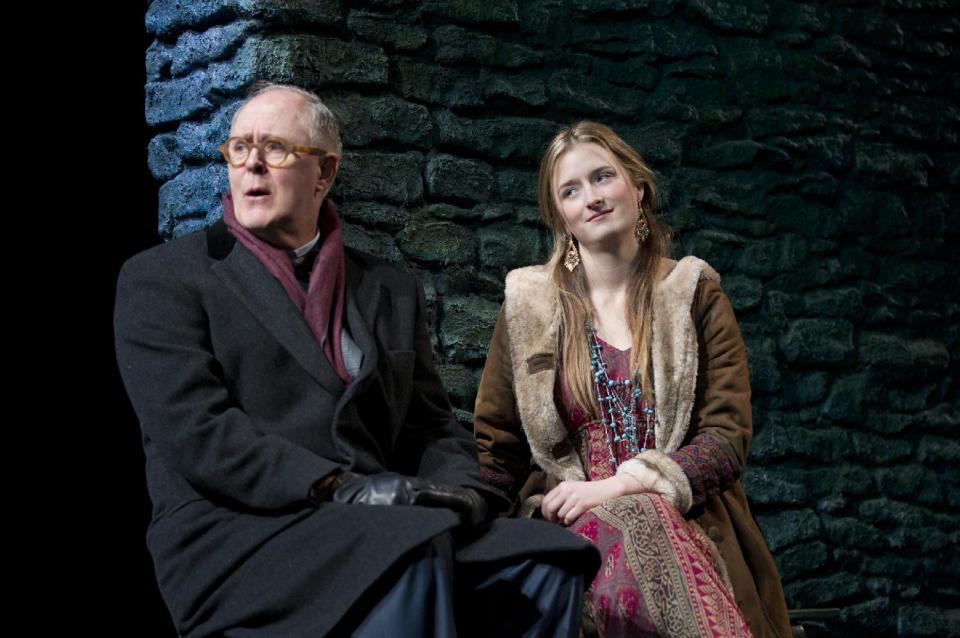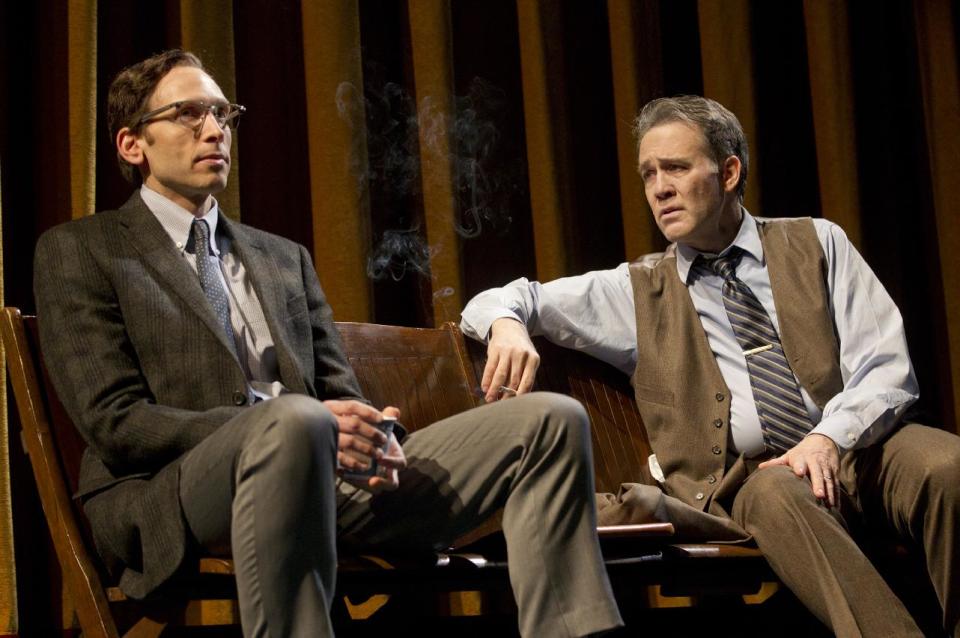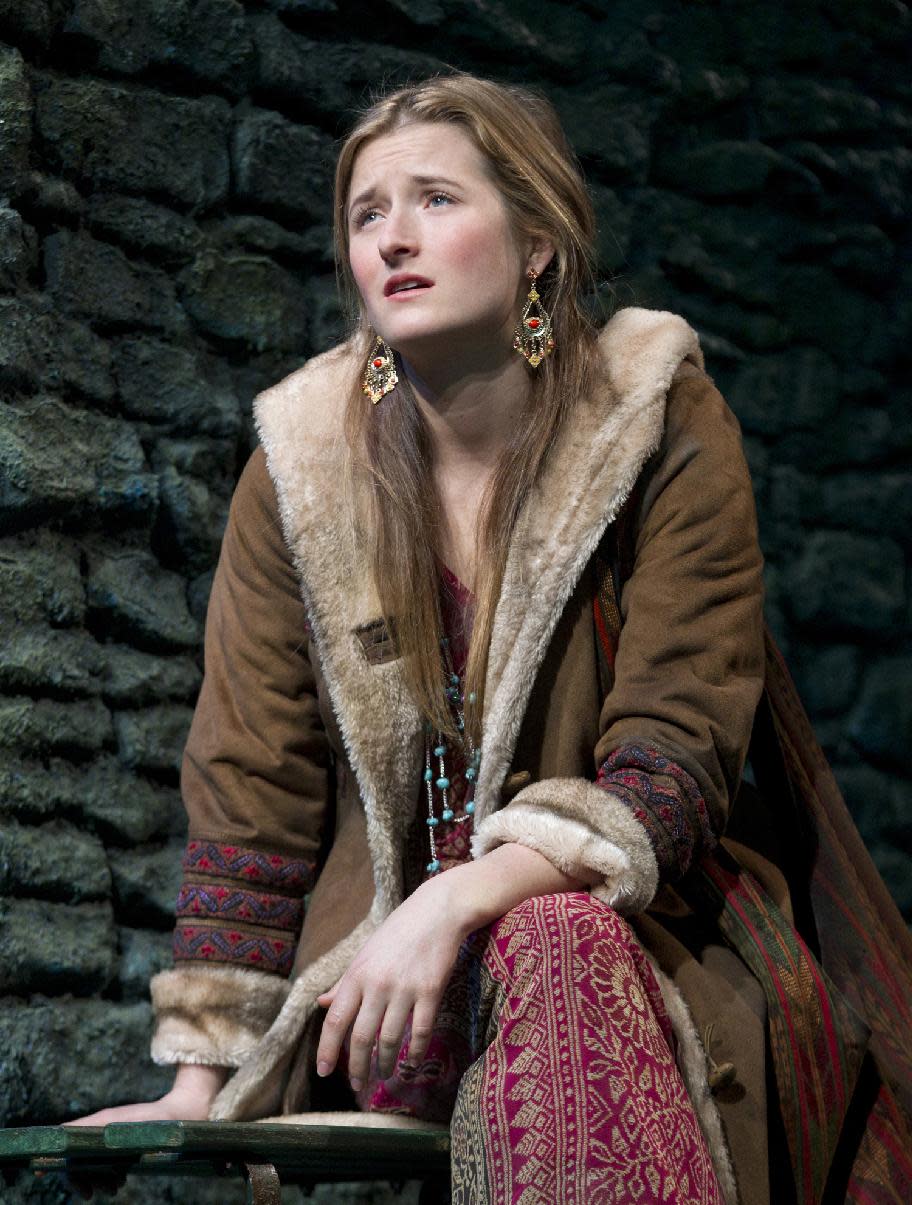Review: 'The Columnist' is revealing but staid
NEW YORK (AP) — It's obvious why playwright David Auburn was so fascinated by the story of journalist Joseph Alsop. Just look at some of the elements: enormous political influence, a key role in the Vietnam War, Soviet blackmail and a secret life.
It is also quite clear why John Lithgow would want to play the role — it offers imperious rants, droll humor, private sobs, regret and lines like this: "Politics is human intercourse at its most sublimely ridiculous and intensely vital."
Auburn and Lithgow have teamed up to offer a revealing if staid look at Alsop, a fixture in Washington's elite circles during the 1950s and 1960s who wrote an influential syndicated newspaper column. In many ways, he was the predecessor of today's personality-driven public commentators like Rush Limbaugh and Keith Olbermann.
The portrait that emerges — Manhattan Theatre Club's "The Columnist" opened Thursday at the Samuel J. Friedman Theatre — should send a chill down the spine of any pundit who begins to think he or she is bigger than the story. Director Daniel Sullivan has tried to make each scene stand on its own, but the result is a play that may be more fun to perform than watch.
Auburn draws a portrait of a self-important WASP in decline, losing his clout and growing increasingly disconnected from reality as he doggedly defends the Vietnam War even as the facts show its horrible costs.
"Yes, you're damn right I 'subscribe' to the domino theory. I named the damned theory," Alsop screams into a phone to a newspaper editor in one scene.
After a fact-finding visit to Saigon, he announces: "I saw the endlessly resourceful military of a great and benevolent power in a twilight struggle for freedom against an inhuman enemy."
But Alsop gets steadily undercut by a new breed of journalist — represented in the play by David Halberstam (Stephen Kunken) — who get their material by knocking on doors and speaking to those on the ground, not being ferried about by the government in heavily orchestrated visits like Alsop.
Lithgow clearly relishes playing the part and emerges as a bow tie-wearing, slightly prissy and officious snob. But tenderness comes out during moments with his daughter, and he bristles with indignation and fear whenever he is questioned or maligned. The rest of the cast have less to do but make their limited roles count.
The play, broken up in a series of chronological imagined scenes, also shows Alsop juggling home life with his stepdaughter (Grace Gummer), wife (Margaret Colin) and brother (Boyd Gaines), with whom he collaborated on a widely admired column from the 1940s to 1958. The action ends in 1968, long before Alsop's death in 1989 at age 78.
Make no mistake. Alsop is not worried about giving his readers entertainment or satisfying their interests. "We tell them what they need to know," he says flatly at one point.
Auburn has teased out a spy thriller as a framing device: The play begins in 1954 in a hotel room in Moscow, where Alsop has bedded a local tourist guide. It's a trap and the KGB now has compromising photos that could destroy the columnist. How he escaped destruction must wait until the final scene.
In the meantime, we see Alsop fighting with other journalists, winning and dining the influential, mourning the death of his hero John F. Kennedy ("I feel like my life has been broken in half") and trying, as a closeted homosexual, to keep his wife happy. His brother, the more populist-minded Stewart, is largely dominated by the older Joe in the play, even though Stewart meets with critics of his brother and pleads for them to help cover up the scandal.
"I wish I had your certainty," Stewart tells his brother in one scene.
John Lee Beatty's sets switch Lazy Susan-style from upper-crust interiors with wood-paneled bookcases and elegant sofas, to park benches, and even a minimalist Saigon bar. His best set is toward the end at a cemetery that features a stone wall lit beautifully by Kenneth Posner.
"The Columnist" joins two other plays this season to tackle journalists, "The Wood" about tabloid columnist Mike McAlary and "CQ/CX" about the Jayson Blair scandal at The New York Times. The new musical "Newsies" even celebrates turn-of-the-century newspaper sellers. Who says interest in journalism is in decline?
___
Online:
http://www.manhattantheatreclub.com





